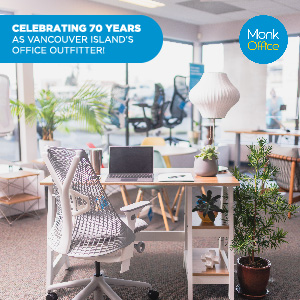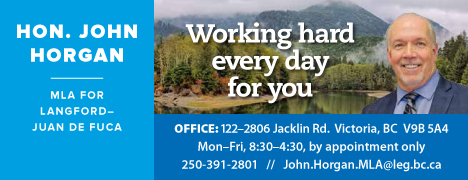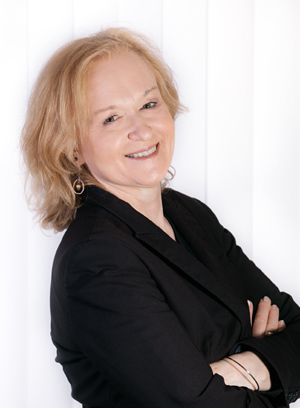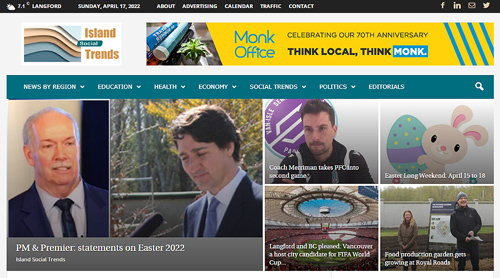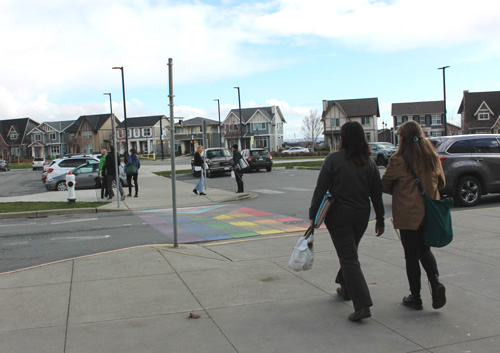
Sunday April 24, 2022 | VANCOUVER ISLAND, BC
by Mary P Brooke, Editor | Island Social Trends
Former BC Green Party Leader Andrew Weaver was at a high school career day on March 16 in Colwood, talking to students about environmental challenges. He says that dealing with climate change offers opportunities.
A well-known climate scientist who last year endorsed the federal Liberal Party’s climate change policy, Weaver is back to teaching at the University of Victoria full time. And it shows how much he enjoys addressing youth.
Over 10 years ago, when the professor realized that he had been identifying for his students that political change was required in order to facilitate climate change, he stepped up and put his feet to the fire.
Weaver stepped out of his teaching-career comfort zone and into the political fray. He did a good job there, but he was always clear about his reasons for doing that, which helped him know when it was time to step back.
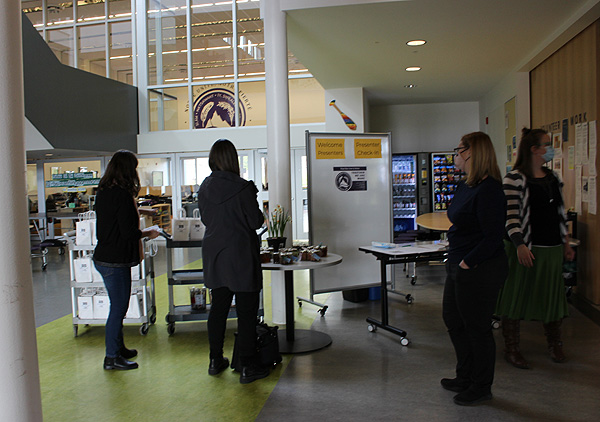
Annual Royal Bay Secondary career day:
After Weaver’s presentation to a few groups of students on career-day in March at Royal Bay Secondary (the largest high school in the fast-growing Sooke School District SD62), Weaver chatted with Island Social Trends about his approach in addressing the youth audience.
Lens of opportunity:
First Weaver inquired about the students’ interests. He heard agriculture, clean energy, marine biology and architecture.
“Okay, now let’s talk about the notion of climate change, from the lens of the opportunities it creates,” he told the students assembled from Grades 9 to 12.
“We often talk about this through the lens of the challenge and the problems. But really every environmental challenge can be seen through the lens of the opportunity it creates for innovation, prosperity, and creativity,” the UVic prof said.
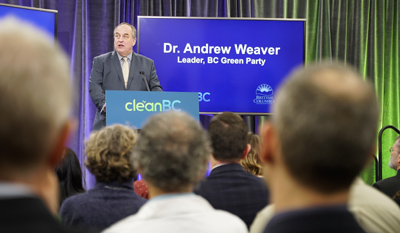
Transportation as an example:
With transportation as an example, Weaver explored the process of taking positive steps with environmental decision-making:
“If you build electric cars, you’re still polluting. Let’s see if we can take the transportation sector and let’s brainstorm some solutions on transportation. If everyone’s driving a gas-powered car, that’s not solving anything. Forty percent of BC emissions are from transportation. We have to deal with it. We know in BC, that our energy is 98 percent renewable. So if you switch to an electric vehicle, in BC you’re actually reducing emissions,” Weaver explained.
He continued: “However, as population grows, if everyone keeps driving singular vehicles, we’re going to have a problem. So you’ve got to couple that with an active transportation strategy. So there’s innovation potential there. There’s job opportunities for youth and ideas in active transportation.”
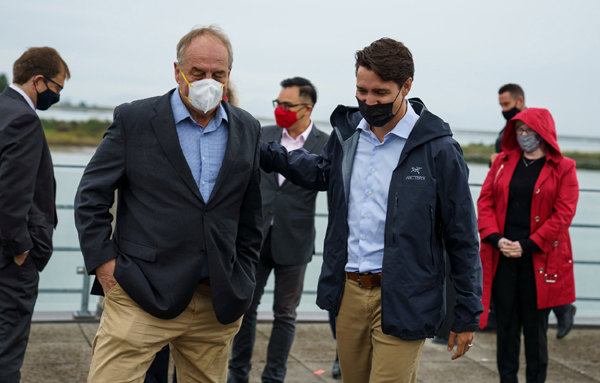
“And also, when you build that electric car, of course there’s gonna be minerals. So now you have to think of innovative ways of extracting the minerals that are cleaner and greener. For example, in the production of steel, we’re now developing technologies that actually replace the requirement of coke in the steel-producing process to eliminate the emissions coming from the steel.”
“Then we also then have to think about mining, for lithium for the battery. There’s innovation in companies like MineSense (MineSense Technologies Ltd) in Vancouver, that are finding effective more efficient means of extracting sediment.”
In recent weeks, the federal government has announced a major investment in a battery-manufacturing plant. Last week in Colwood, Prime Minister Justin Trudeau promoted the transition to electric vehicles (EVs). The $4.9 billion Stellantis battery plant in Windsor, Ontario will create 2,500 jobs and produce enough batteries to power about half a million EVs every year.
Avoiding hysteria:
“I’m really worried that there’s a lot of hysteria out there on the climate issue, which leads to despondency,” Professor Weaver told Island Social Trends.
“The youth of today have got enough to worry about,” said Weaver. He rattles off the top of the list: Ukraine, Russia, climate change, COVID.
“Like, these guys have spent two years not being youth. The last thing we need to do is not scare the crap out of them on one more thing. So my main emphasis (in the career session) was trying to see every environmental challenge through the lens of the opportunity to create change,” the prof said.
Change includes politics:
And it loops back to politics. Youth can help foster change through politics. Weaver says it’s about “the importance of advocating for what you want, as much as what you don’t want”. He notes that politicians “deal with what you don’t want, all the time… but what they don’t hear is what you do want”.
“And when you get what you want, you think ‘okay I’m done’. But he articulates that politicians actually need continued support, to actually implement it.
Societal change as directed by public policy is almost always methodical and slow, as gears of the system get adapted in safe and perfunctory ways. However, swift changes made under duress during the pandemic in 2020 and 2021 can be seen as an important exception. That was a clear example of how government can take decisive action in the blink of an eye… and more importantly, that the results are not always too scary.
Witnessing the speed at which government could move in response to the pandemic — i.e. when clearly it mattered to everyone — has ignited a manner of social licence for government to start spending more on climate change and longer-term infrastructure investments. There’s even now an implicit ‘okay’ from the general population for pushing the boundaries of previously contained budget areas like defense spending during now the Ukraine crisis. That no doubt was facilitated thanks to Canadians seeing how they mostly got bailed out by generous spending and the country didn’t crash.
Did stepping into politics work?
Did stepping into the political arena work? “Oh yeah, I got exactly done what I wanted to do,” Weaver told Island Social Trends.
“I was a climate scientist who at the peak of my career took a 50 percent salary cut, to go into the legislature, to raise the issue of climate change, because I could not stand by and watch the dismantling of our leadership,” he said.
Royal Bay Secondary Career Day:
The annual career day at Royal Bay Secondary School is held just ahead of the SD62 Sooke School District spring break each year.
===== RELATED:
Andrew Weaver: stepping up & speaking up when it matters: In-depth feature about Andrew Weaver’s decisions about in-and-out of politics (by Island Social Trends, April 18, 2022).
Electric vehicles necessary to hit climate targets (April 12, 2022)
Royal Bay Secondary Career Day back to in-person (March 16, 2022)
BC Budget 2022: dealing with climate-impact management (February 24, 2022)
CRD congratulates youth Cool It! Climate Leaders (June 28, 2021)
Growing food at SD62 schools includes summer work experience (June 4, 2021)
SD62 to protect mental health & arts amidst 2021-2022 budget cuts (April 14, 2021)
===== ABOUT THE WRITER:
Island Social Trends Editor Mary P Brooke, B.Sc., Cert PR has been covering the news of the south Vancouver Island region since 2008.
Ms Brooke is the founder of a series of socioeconomic news publications that have been based in the west shore region. First in the series was MapleLine Magazine (2008-2010), which morphed into Sooke Voice News as a print weekly (2011-2013), then into West Shore Voice News as a weekly print/PDF (2014-2020).
Stepping away from the print format and going fully online mid-2020, Mary has taken her insightful approach to journalism island-wide (including BC and national news) at islandsocialtrends.ca.
Island Social Trends subscriptions are available — free, economy or premium.




